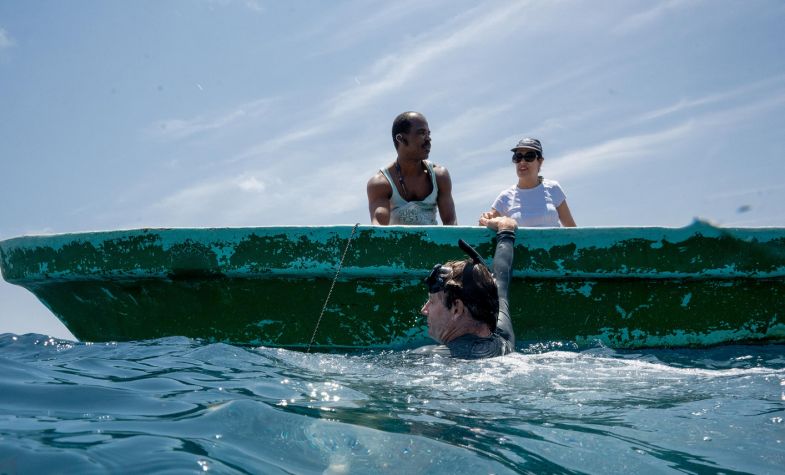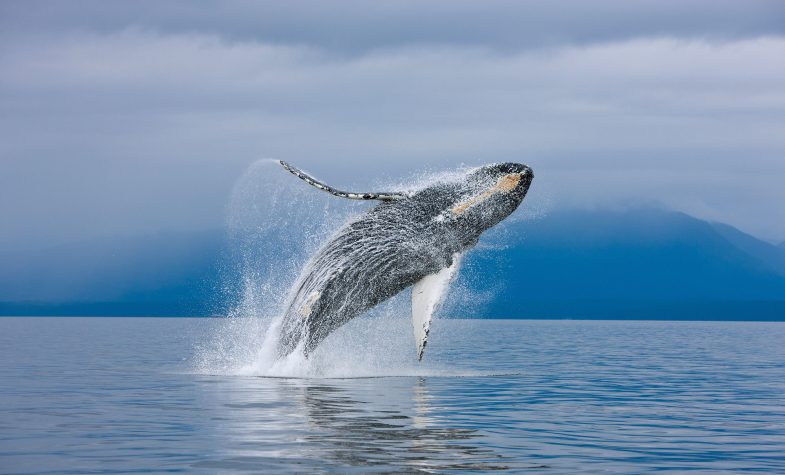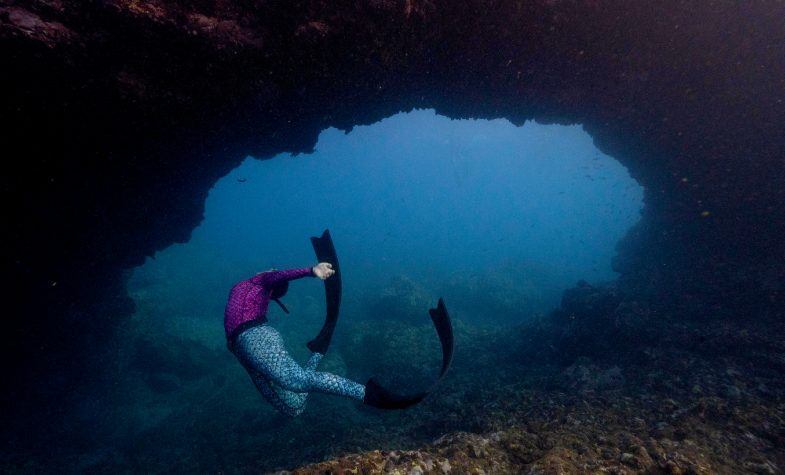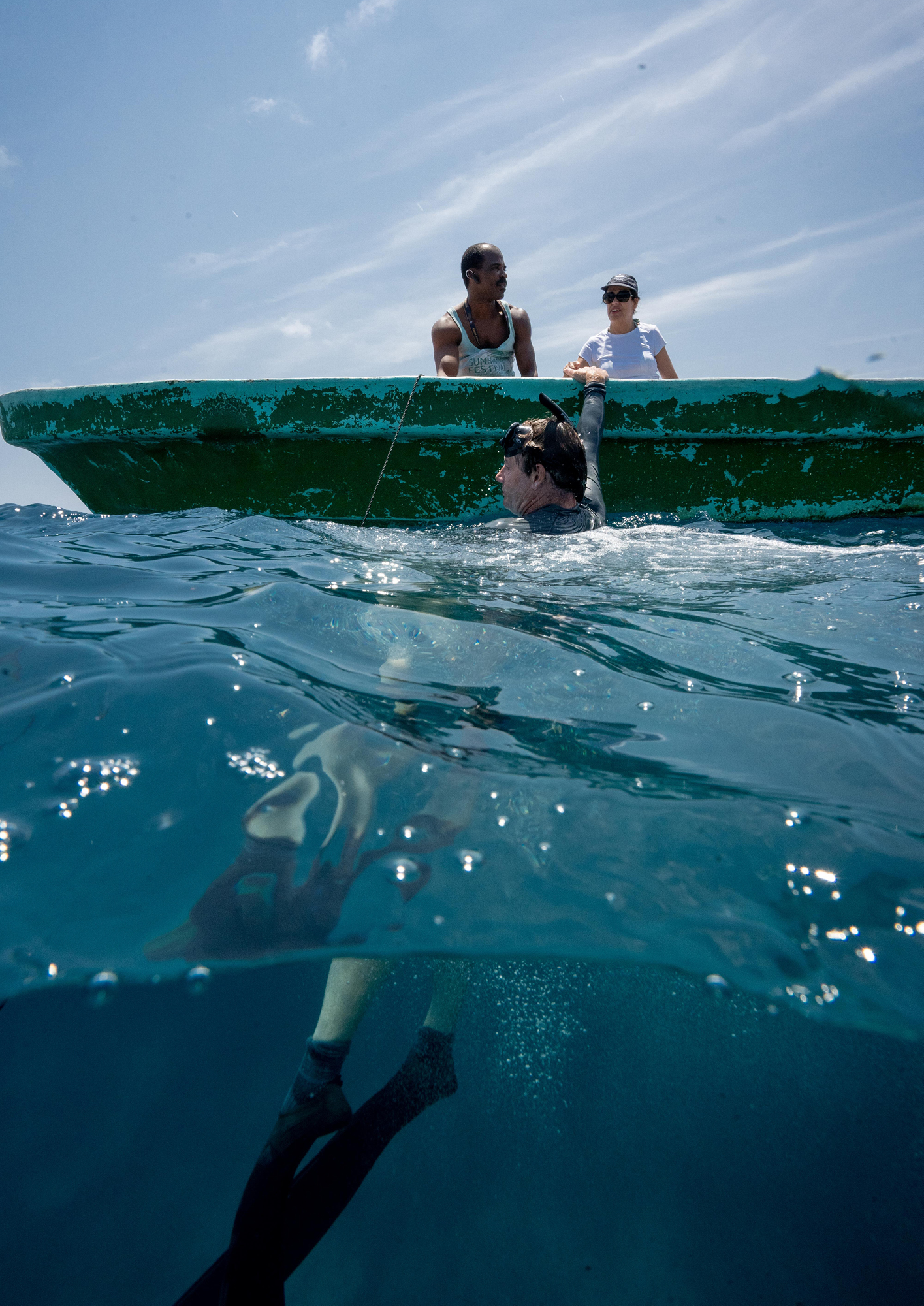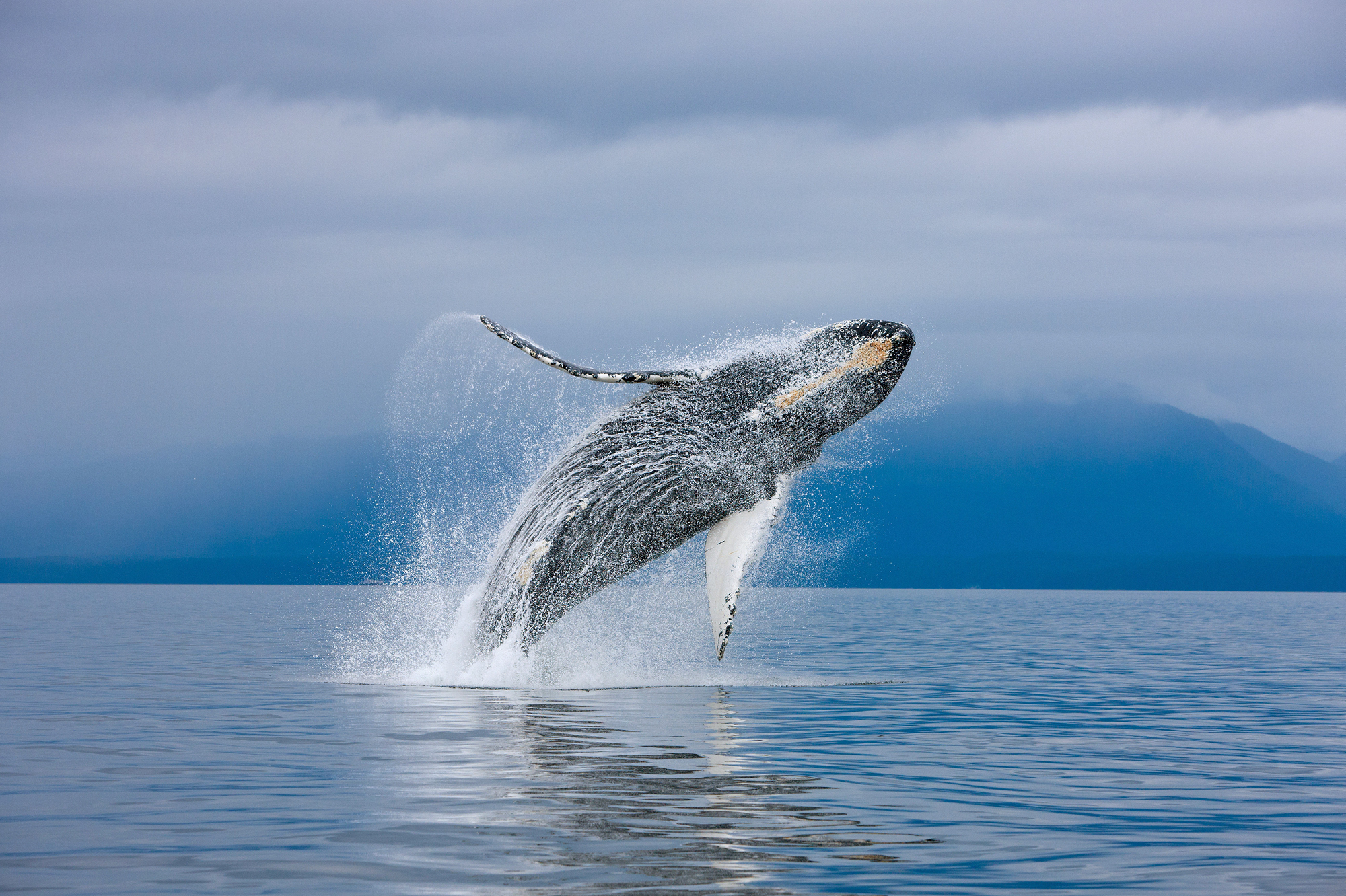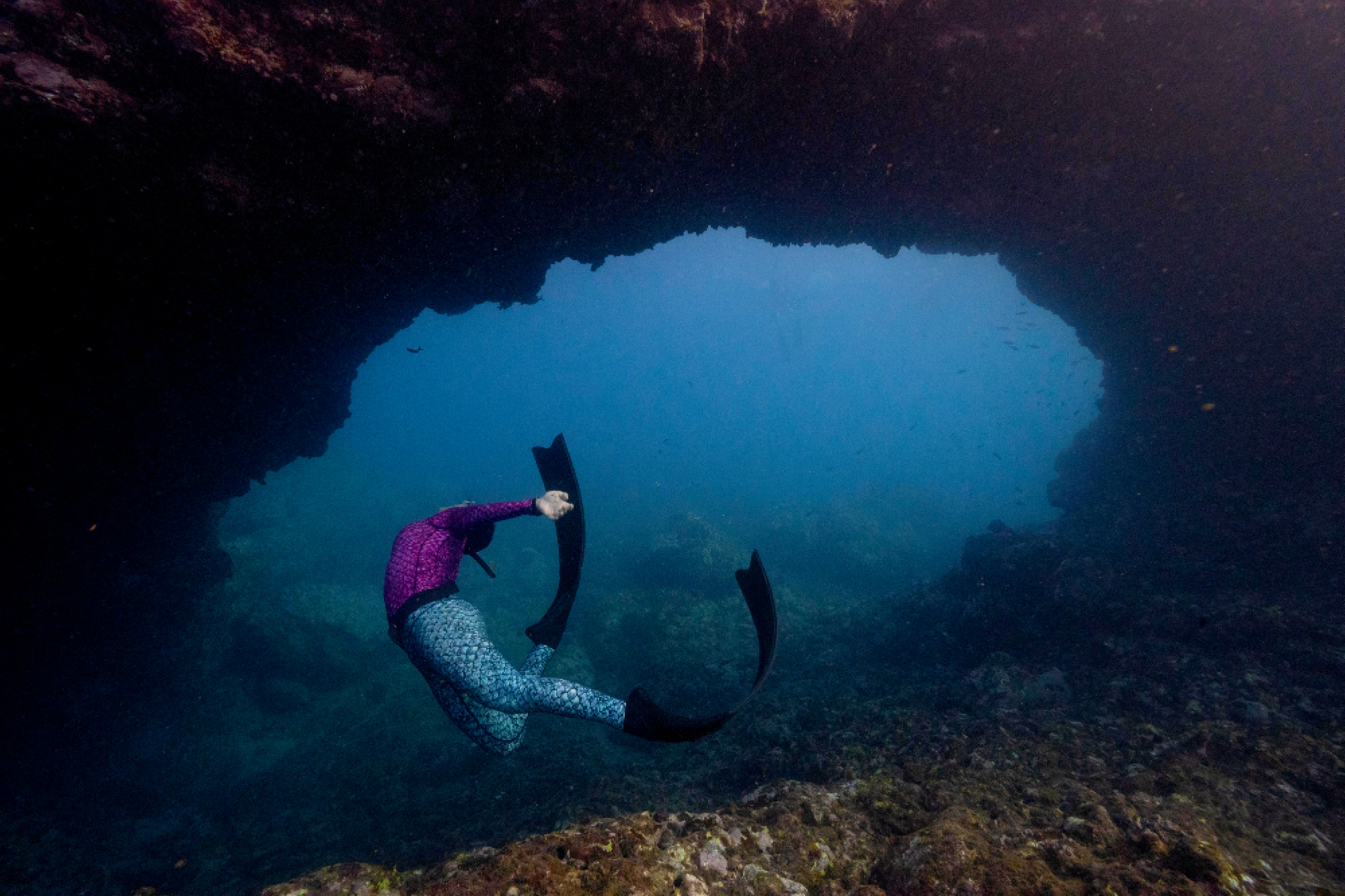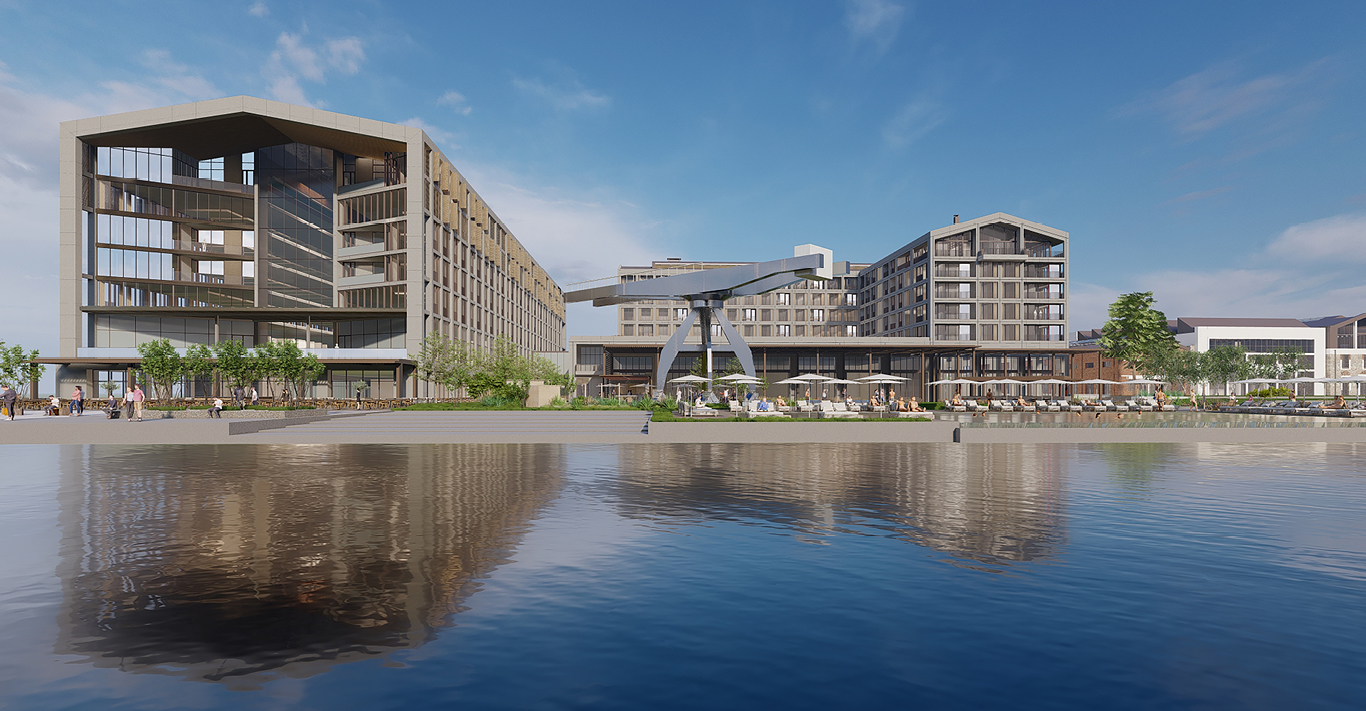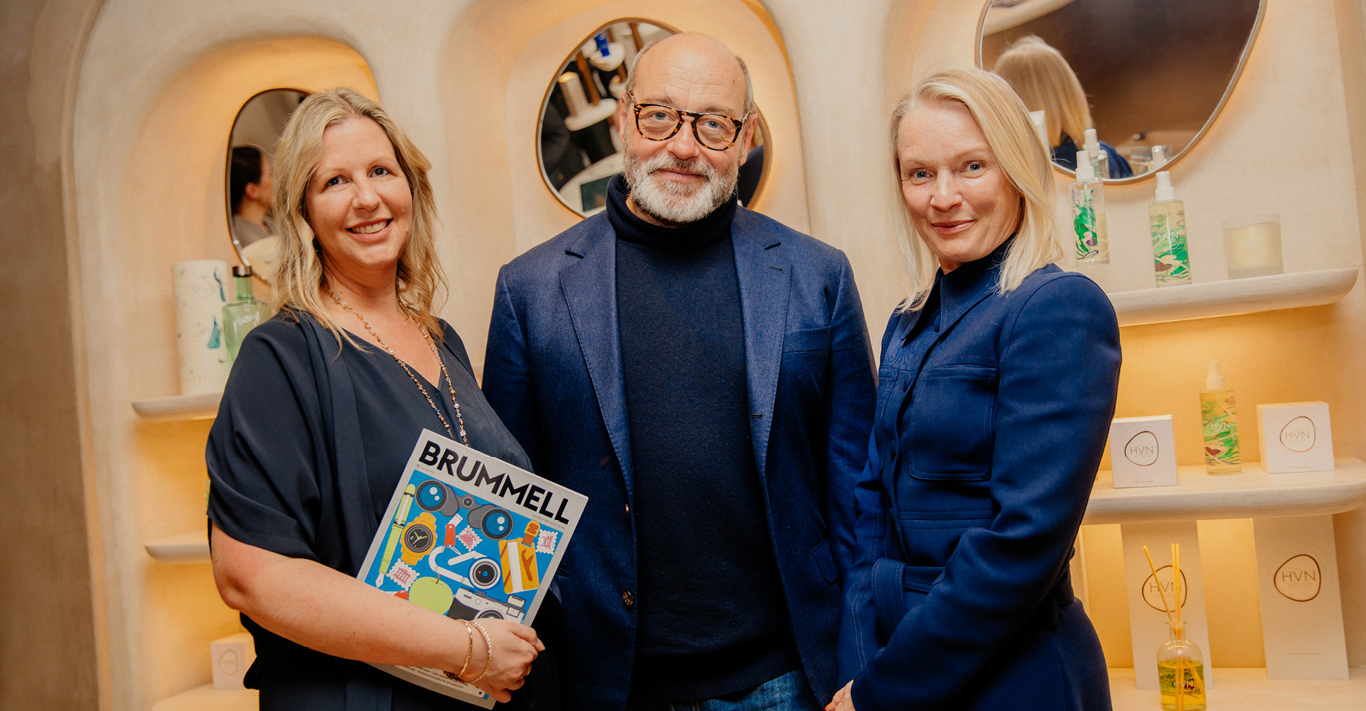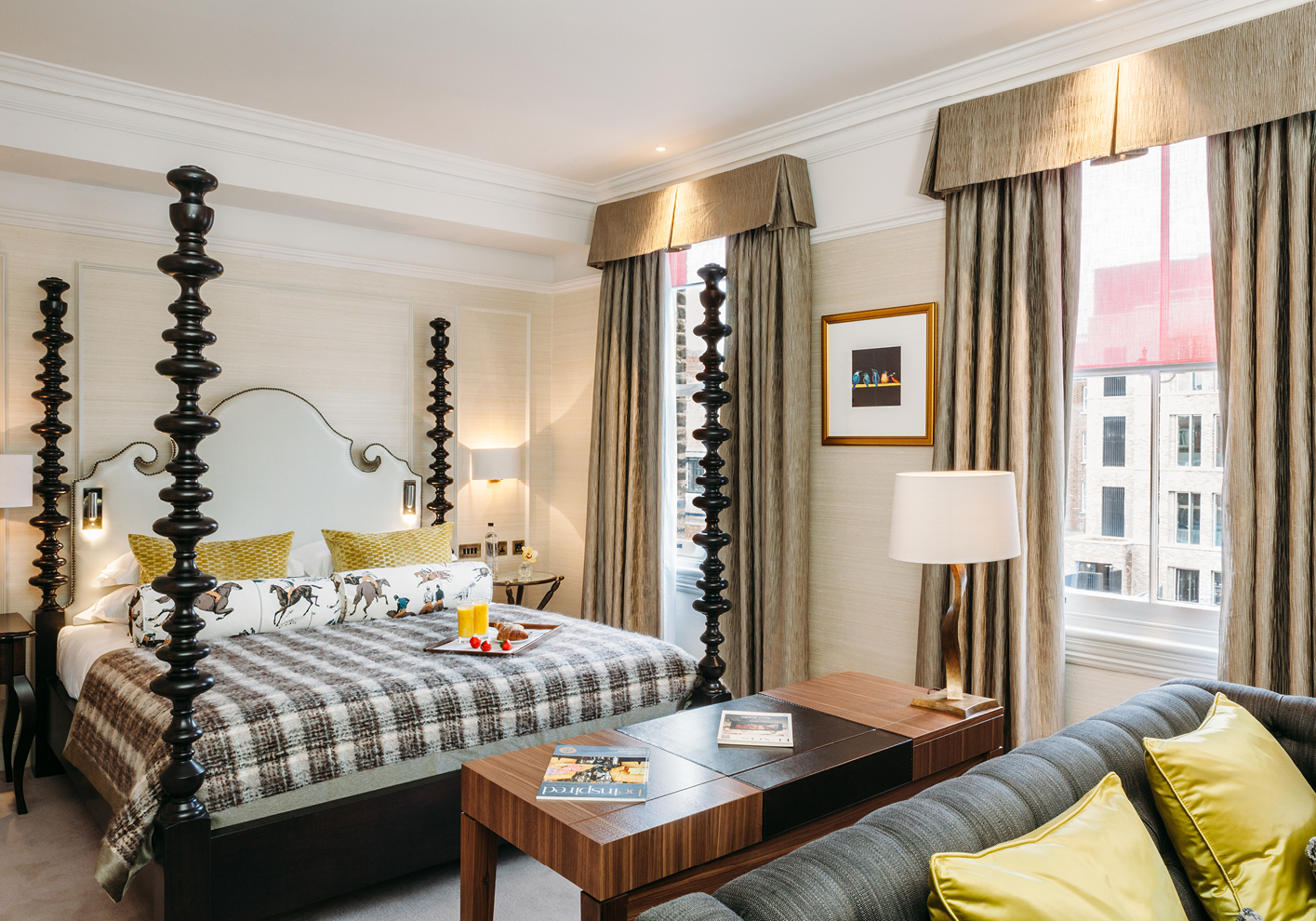WORDS
Ian Belcher
Now this is interesting – even a little daunting. I’m a couple of miles offshore with muscular Atlantic swells rolling beneath me; a human speck swimming up, then bodysurfing down, deep valleys of Prussian blue water. As I ride the great slabs of brine, my guides – one a champion free diver, the other the holder of eight world swimming records – vanish over the incoming wave.
Perhaps I’ve watched too much Blue Planet but when I imagined swimming with humpbacks, I pictured something a little more serene, a little less Herman Melville. I’d probably be floating in a translucent, flat South Pacific, serenaded by the leviathans’ wistful melodies – the call of the mild.
But that is another country, another continent, another world. I’m now 160 miles off equatorial West Africa on a recce of the petite island of Príncipe. Could this be the next hotspot for swimming with whales? With the surging ocean dwarfed by jungle-clad volcanic peaks, this particular adventure needs no CGI. Príncipe, a Unesco biosphere, is already feted for its whale watching. Each summer, a prolific stream of humpbacks migrate from Antarctica to mate and calve in the balmy Gulf of Guinea. To maximise our chances of meeting them, my guides – Hanli Prinsloo and Peter Marshall, who combine free-diving tuition with extraordinary marine encounters – are equipped with satellite apps showing ocean depths, 20/20 vision and hi-tech binoculars to spot the spray of breaching whales. Let the drama begin.
Nature, however, hasn’t read the script. After early morning yoga and dive training we spend several fruitless hours on the water. We’re escorted by flying fish, turtles and dive-bombing brown boobies but there’s not a hint of a humpback. Skipper Fernando Almeida rubs saltwater in our wounds. ‘You didn’t need to search last year,’ he recalls. ‘The whales were everywhere, all the time.’
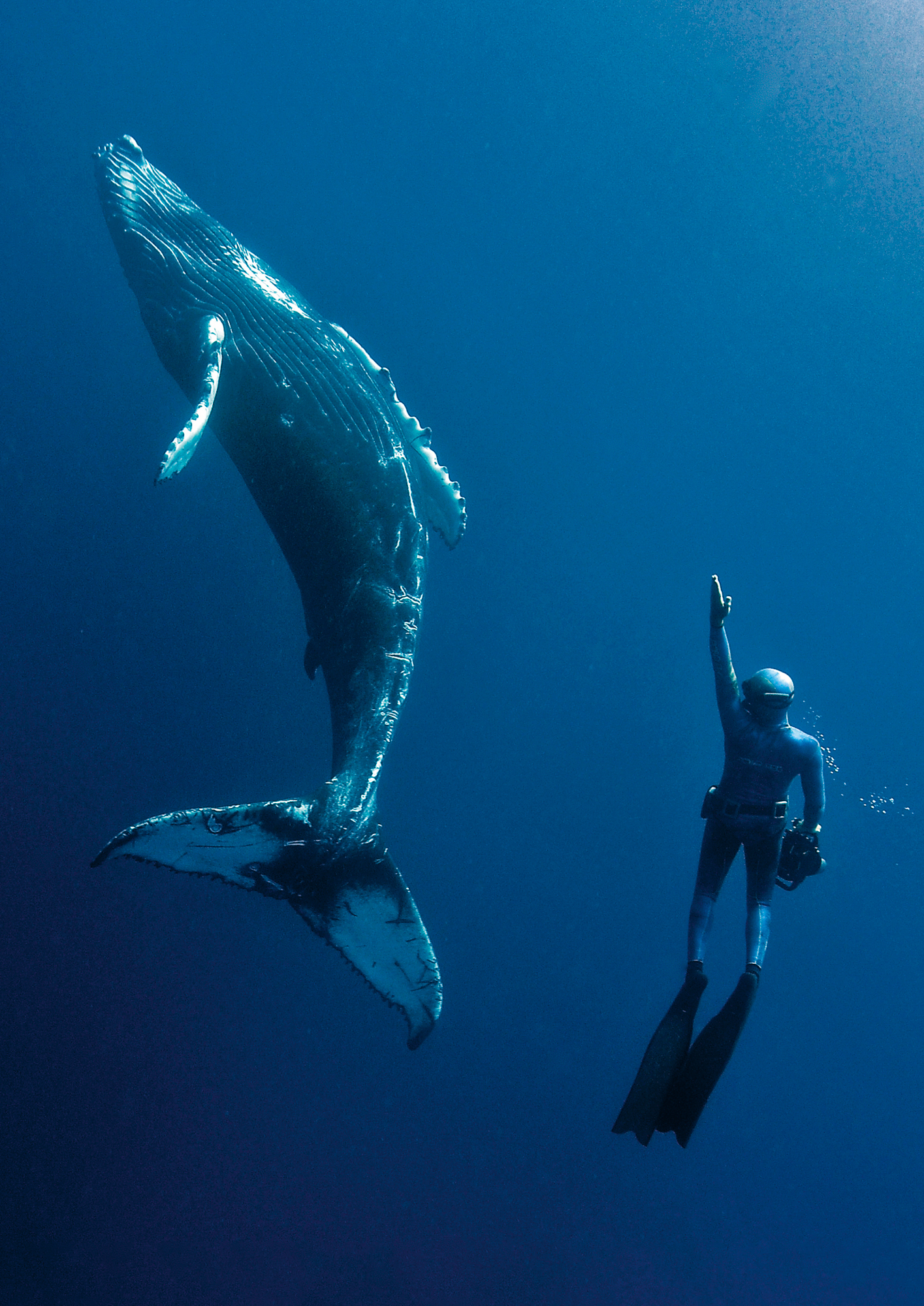
Next day is no better. We constantly chat to fishermen in flimsy wooden boats, but none has seen a humpback for weeks. ‘They’re so happy,’ laughs Almeida, who’d make a terrible diplomat. ‘Most locals are too scared to go out with the whales but this year there are virtually none.’ Our frustration is released with shots of adrenaline; free-diving through an underwater arch, and down the steep wall of an offshore islet. But we’ve now spent 11 hours without seeing, let alone swimming with, a single humpback.
Ironically, salvation may lie onshore. As part of tech entrepreneur Mark Shuttleworth’s $100 million investment in sustainable Príncipe tourism, he established a foundation – now a stand-alone NGO – to protect the remarkable ecosystem. Its latest project gives school children books and uniforms in return for recording whale sightings at key viewpoints.
I find Leandra Cabinda in a bamboo spotter’s chair overlooking Agulhas bay, its fecund shoreline punctuated with menacing fangs of rock. Memorable view, terrible feedback; she has only spotted four humpbacks in two months. ‘We’re seeing fewer and fewer,’ she sighs. ‘Perhaps the Chinese are eating them?’ I haven’t time to investigate Cabinda’s politically explosive theory because, within two hours, a fisherman reports a breach: ‘Minutes ago, about 700m to the south’. Cue several waterspouts, rolling finsand – pass my sedatives – a heart-stopping close encounter. The 40-tonne humpback explodes from the Atlantic, just 25 metres from our boat, spinning athletically in mid-air. It’s so close I’m looking up at the gnarled tubercles on its flippers.
As it crashes down, apprehension mingles with excitement. ‘They’re incredibly aware of what’s around them,’ reassures Prinsloo, as we pull on flippers and masks. ‘I’ve had huge whales right next to me without a touch.’ Of course, she adds with an evil grin, ‘If one does land on you, it’ll break your neck, spine and everything else – but it’ll only happen once.’
In fact, nobody climbs straight into the sea. Each whale’s behaviour is observed, its dives and waterspouts timed, its route monitored, allowing the guides to calculate a rendezvous. Once in the water, we swim close without splashing. It’s about whale as well as human welfare, minimising disruption for mothers nursing their calves.
Arranging a date with a travelling humpback is a tricky business. The waterspouts indicate they’re diving down for a relatively quick four minutes before resurfacing. We cruise ahead, swim to a potential meeting spot and wait. And wait. And wait. They finally re-emerge, 12 minutes later, hundreds of metres away. We can take a hint.
Two hours later, we’re getting used to rejection. We follow a mother and calf for 45 exciting yet confusing minutes. They zigzag behind, to the side and in front of us, but when we dive in, they disappear altogether. We’ve been ghosted. Finally, we find ourselves swimming furiously to catch up with two whales that rolled just metres from the boat. It feels a little desperate. We lick our wounds diving off Jockey Cap Island, a perfect Bond villain lair that Marshall describes as looking ‘a little shark-y’. Dear Lord.
The final day starts promisingly. Three metres down, during free-dive training, I detect melodic squeaks and static growls. It’s not the reverberations Prinsloo has sometimes felt in her chest – ‘Like sitting next to the orchestra pit at the Philharmonic’ – but it’s definitely a humpback crooning the single song all males will repeat endlessly this year: a cetaceous summer anthem.
It’s a false lead. Instead it’s dolphins that take centre stage, the 50-strong pod swirling around Prinsloo in the water. The whales, however, continue to offer one cold shoulder after another. We spend the last hour watching two adults and a calf lolling in a sheltered bay. They hardly move, occasionally rolling and tail slapping – the most inviting behaviour so far.
We kill the engine, drift silently on the current and softly swim the last metres. Are we about to score a very late goal? Sadly, no. The humpbacks dive down, fleeing directly beneath my feet. The hunt, sometimes intimidating, always thrilling, is over. They’re wild mammals, it’s their call. I’ll try not to take it personally.
I am Water Ocean Travel offers bespoke free-diving courses with marine encounters in Príncipe; price on request; group trips elsewhere from £5,600pp; iamwateroceantravel. com. Rainbow Tours offers six nights on Príncipe and São Tomé from £3,520pp including flights; rainbowtours.co.uk


